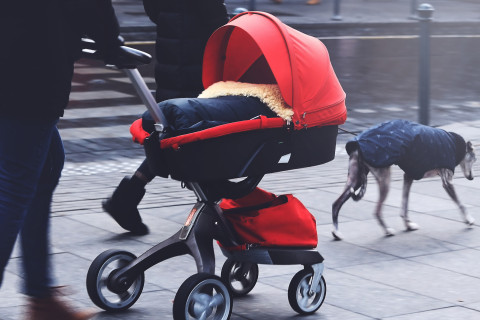Being born in autumn or winter is associated with asthma and allergic rhinitis in Finland, a new registry-based study shows.
Season of birth, and specifically being born in autumn or winter, is associated with allergic rhinitis and asthma in Finland, a new study by the University of Eastern Finland, the University of Helsinki and Helsinki University Hospital shows. Conversely, being born in summer was associated with the lowest incidence of asthma and allergic rhinitis.
“When using summer as a reference, we found that being born in any other time of the year was significantly associated with allergic rhinitis, and that being born in autumn or winter was associated with asthma. However, we did not find a statistically significant association of season of birth with chronic rhinosinusitis or NSAID-exacerbated respiratory disease,” says Sanna Salmi, Professor of Otorhinolaryngology at the University of Eastern Finland.
The association of season of birth with airway allergies and related diseases may be influenced by seasonal variation in light levels, vitamin D metabolism, vegetation and air pollution, which affect allergenicity and immunological responses, as well as the risk of allergic rhinitis. A previous population-based study in Finland has shown that those born in winter or spring have a higher risk of developing asthma in adulthood.
The new study utilised registry-based follow-up data on 74,868 patients who visited a hospital in the Hospital District of Helsinki and Uusimaa (HUS) in Finland, and their birth date, sex, visit date and comorbidities were collected from electronic health record data during visits from 2005 to 2019. When observing the season of birth groups, the proportion of those having asthma was 43.1% in the winter group, 42.1% in the spring group, 41.1% in the summer group, and 42.7% in the autumn group. The proportion of those having allergic rhinitis was 12.6% in the winter group, 12.0% in the spring group, 10.7% in the summer group, and 12.1% in the autumn group.
Published in Clinical and Translational Allergy, the study aimed to explore whether season of birth is associated with airway allergies and related diseases, such as NSAID-exacerbated respiratory disease, asthma, allergic rhinitis, nonallergic rhinitis, chronic rhinosinusitis with nasal polyps, and chronic rhinosinusitis without nasal polyps in Finland.
“Our results may also suggest that the pathogenesis of chronic rhinosinusitis and NSAID-exacerbated respiratory disease is less dependent on these early life events; however, further research in larger cohorts is needed to confirm this,” Professor Salmi notes.
For further information, please contact:
Sanna Salmi, Professor of Otorhinolaryngology, University of Eastern Finland, sanna.salmi@uef.fi, https://uefconnect.uef.fi/en/person/sanna.salmi/
Research article (Open Access):
Riikka Hänninen, Aada Murtomäki, Fanni Svärd, Aarno Dietz, Paulus Torkki, Jari Haukka, Mikko Nuutinen & Sanna Toppila-Salmi. Being born in autumn or winter is associated with asthma and allergic rhinitis in Finland. Clinical and Translational Allergy (2024). https://doi.org/10.1002/clt2.12383



